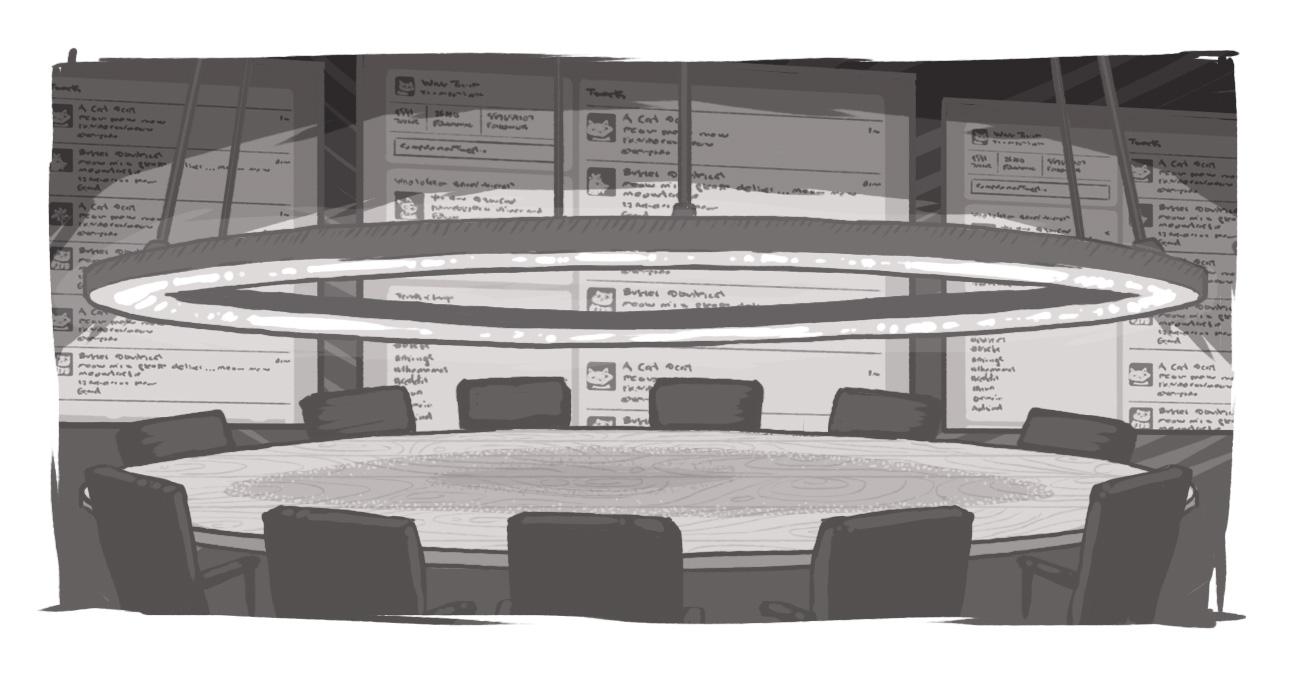Board Participation - Sometimes You Need to be the Willow

In woodworking, a board needs to be relatively rigid and strong enough to support weight. In organizations, that weight-bearing responsibility remains -- but it needs to be far more flexible and adaptive to ensure that boards remain dynamic and creative.
Of course, there needs to be some legacy talent that remains, to provide for that organizational memory. So maybe, continuing that timber-focused metaphor, organizational boards need to be like tree farms -- with ongoing replanting and cultivation at staggered points to ensure ongoing viability.
After all, not all old wood is dead wood -- and sometimes new growth can be too green. You need to find a balance.
Recently, I’ve found myself evaluating my participation in various organizations. At present, I sit on three boards (chairing one), one provincial advisory table, one City advisory committee, one affiliated subcommittee (as chair), and a couple of marketing committees.
Over the past couple of months, I’ve been thinking of succession planning. When I was approached a couple of weeks ago to join another organization’s board, taking over the communications portfolio, it kickstarted a need to fully evaluate my roles. In the end, I’ve accepted the new role; am in the process of transitioning out of another (including recommending my replacement -- who will be awesome), and taking a long-term approach to finding a successor for a chair role, whilst planning to remain on that board.
It’s not easy because I’m passionate about all of these causes -- but sometimes you have to let go a little.
New Blood, New Perspectives
One of things I’m really hoping to achieve, both through my existing roles and the work we’re doing at Echidna, is creating opportunities for the next generation of leaders to come through. We encourage people to explore opportunities where they can share their experiences, talents, and opinions. New perspectives added to a board can help avoid complacency, provide new information and knowledge, and add energy.
Old Wood isn’t Dead Wood
I’m not a fan of absolutes. We live in a culture where often “new” is prioritized and older contributors are automatically perceived as out of touch or in the way. I don’t think that’s the case. I value experience, perspective, and historical knowledge. Personally, I find myself in the middle of young and old (or maybe I’m just deluding myself), and I learn and appreciate both.
All new ideas aren’t immediately revolutionary and innovative. Often, there are legitimate barriers or reasons why new ideas can’t, or haven’t worked. Having some organizational memory and experience can help vet ideas. Just as “because this is the way we’ve always done this,” should never be a final answer, nor should, “I have a new idea” send people running to implement it.
An effective board evaluates all ideas through multiple lenses. It’s perfectly reasonable (and, usually preferable) to say, “we tried that idea once, it didn’t work because [insert reason here], but let’s evaluate what lessons we learned and how we can possibly try again, or come up with another solution.”
Finding Balance
Finding that balance is the key. I’ve been on a couple of boards that have been roadblocked by a veteran member shooting down every new idea, discouraging any sort of participation. I’ve also been a part of organizations that have been hamstrung by a lack of perspective and a desire to just do “something new” instead of evaluating impact and long-term value.
That’s why, sometimes, you need to look around the room. If everyone looking back at you looks like you -- whether that’s all old, all young, or all one sex, gender, race, or ability/disability -- then it’s time to re-evaluate its composition and try to bring some variety into the process.
And sometimes, that means you need to step away and let someone else join in.
In general, building a board is no different than building a team -- you need all types, you need checks and balances, and you need cohesion. Because once you have that, you have a solid foundation to make a difference.
In the end, we all want to be a part of that. Sometimes it’s enough to know you laid the foundation; other times, you’re starting out on a new branch. But what you never want to be is the barrier that prevents success. After all, a board that’s too rigid will snap -- sometimes you need to be the willow.
How do I build an effective board.
SUBSCRIBE TO OUR E-NEWSLETTER
 Subscribe
Subscribe


